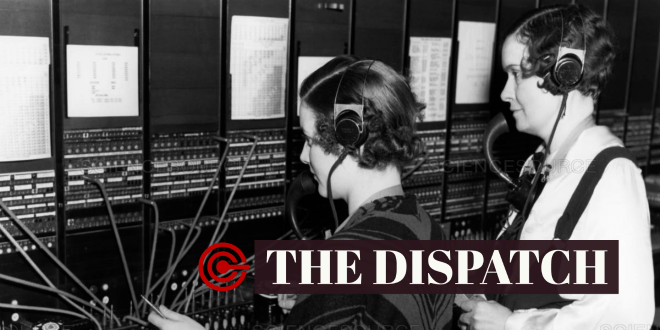The Dispatch – March 5-6: Consensus & Consent, Misunderstood
Saakashvili’s Remarks Threaten Dialogue, Again |Rescue Attempts by EU FMs, CSOs| Anti-HPP Activists Show Dialogue Class | Underage Rape Back in Spotlight: Minister’s Statements Make it Worse | Healthcare for Occupied Territories: Useful Stats
Usual greetings from stalled Tbilisi! OSCE/ODIHR has just published its final report on the October 2020 elections – top news on tomorrow’s agenda. As for today’s discussions: Georgia’s previous rulers keep failing the idea of consensus and compromise – unlike local activists who were indirectly slammed by elites as irrational. Meanwhile, some people who pretend to govern have been getting the idea of sexual consent very wrong.
The Dispatch and me, your operator – Nini – are having our ear to the ground – seeking context in isolated events – and trying to glean the meaning in the absurd. Subscribe here!
OOPS, HE DID IT AGAIN! Soon after the departure of European Council President Charles Michel, cracks in the promised EU-mediated dialogue started to appear. Now Ex-President Mikheil Saakashvili, the usual apple of discord and the in absentia leader of the United National Movement – made things worse (again) as he publicly refused to green-light the idea of a plebiscite. Checking public backing of snap elections has been so far considered as the viable compromise between the boycotting opposition and the ruling Georgian Dream party. The in-country opposition, including the UNM members, do not share Saakashvili’s opinion and said so. The thing is: Saakashvili’ss untimely rants are easy to hate, but hard to ignore – and the efforts by President Michel don’t seem to have Ex-President Michael’s backing. Expect the Georgian Dream to make this a bigger deal than it is.
TIME IS RUNNING OUT In the meantime, walking into Žygimantas Pavilionis-sized breach, Lithuanian Foreign Minister Gabrielius Landsbergis was quoted as saying that EU foreign ministers are pondering forming a mediator group to help the country out of the stalemate. Georgian CSOs and public figures are more specific: suggested steps include, among others, the release of alleged political prisoners, genuine electoral and anti-corruption reforms, strengthened parliamentary oversight role, and a more independent justice system.
FREE ONLINE COURSE In the pandemic-age of virtual education, divided political class could brush up on their negotiation skills – especially that a free tutorial is now available online, courtesy of the anti-HPP activists from Western Georgia. They insisted on meeting the Ministers not behind the scenes, but outdoors, under the media’s watchful eye. The meeting follows the intimate conviction reached by the ruling party that the protests against the controversial Namakhvani HPP project are due not to the contractual problems or real concerns, but to “communication flaws.” During the meeting, the project opponents said they were upset that the Georgian Dream broke their campaign promise not to build large-scale HPPs. One woman said the “communication effort” was coming a little late, since the riot police got there first, well before the ministers.
Still, the meeting went in an orderly and respectful fashion – apparently, wide public support, clear consciousness, and valid arguments gave protesters enough solid ground. A lesson to Georgia’s bickering political parties. The activists demand clarity over the draft contract that was leaked to the media and was critically evaluated by EMC, a watchdog. “We both have our own truths but there is only one Truth,” Economy Minister Natia Turnava responded, promising to eventually find that one verity.
(A word to philosophers and linguists out there: Georgian has a special word “tcheshmariteba” to denote an absolute, objective truth – as opposed to a subjective one, which is called “simartle”. You may want to try to translate!)
WRONG EXCUSE Sexual crimes against underage girls are back into the spotlight as reports emerged of a 13-year-old girl giving birth after a statutory rape by a 50-year-old man. Now Georgians want to do something about it. On March 8, “1,000 parents” will be marking International Women’s Day by marching Tbilisi streets to voice their concerns – as part of the protest campaign launched in February in response to a shocking suicide by an alleged underage rape victim. At the time, the authorities came under fire for the delayed response, as police moved to arrest the suspect only after the tragic incident.
Today Interior Minister Vakhtang Gomelauri gave his excuses, saying all parts of society are often equally responsible for similar tragedies. He made things further worse by claiming there was nothing else the police could have done since the minor did not confirm any violence when reporting sexual relations with an adult man. Now Monday’s march looks more timely than ever: key demands include amending the definition of rape in the Criminal Code to make the absence of consent – rather than evidence of violence – the principal part. And the Ministers may recall that there is such thing as “the age of consent,” and educate, promote and prosecute, before reaching for an easy excuse.
HEALTH=CARE For data junkies or those who’d like to have some more insight into Georgia’s humanitarian efforts in the occupied regions: Institute of Development of Freedom of Information (IDFI) – a Georgian think-tank with data affinity – was generous enough to provide a statistical overview of Georgian healthcare programs in Abkhazia and Tskhinvali regions over the past 2 years. One of the findings says the number of users of Georgia’s Universal Healthcare Program increased in both regions in 2019, followed by a noticeable drop up until October 2020, presumably due to pandemic-related restrictions.
That’s the full lid for today. Celebrate the bizarre and the curious in Georgia’s politics with us every Monday, Wednesday, and Friday!
